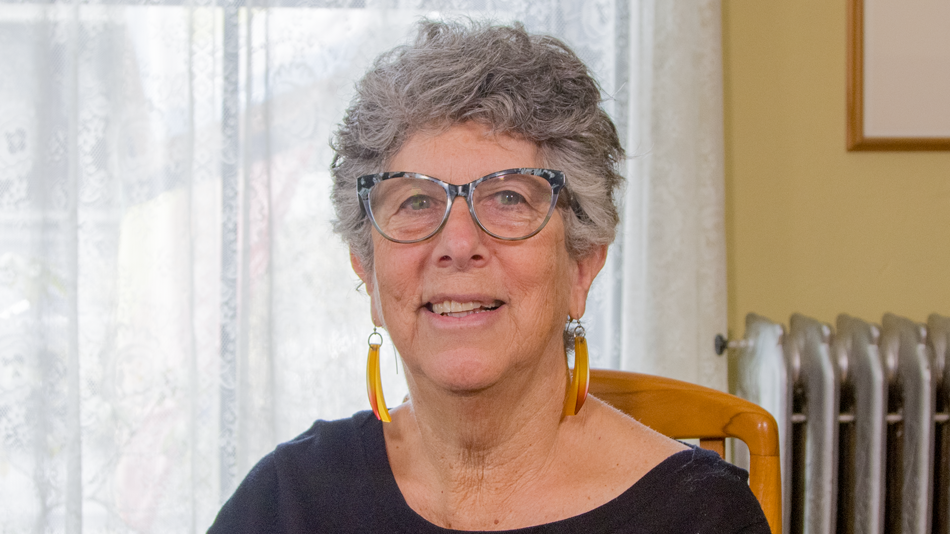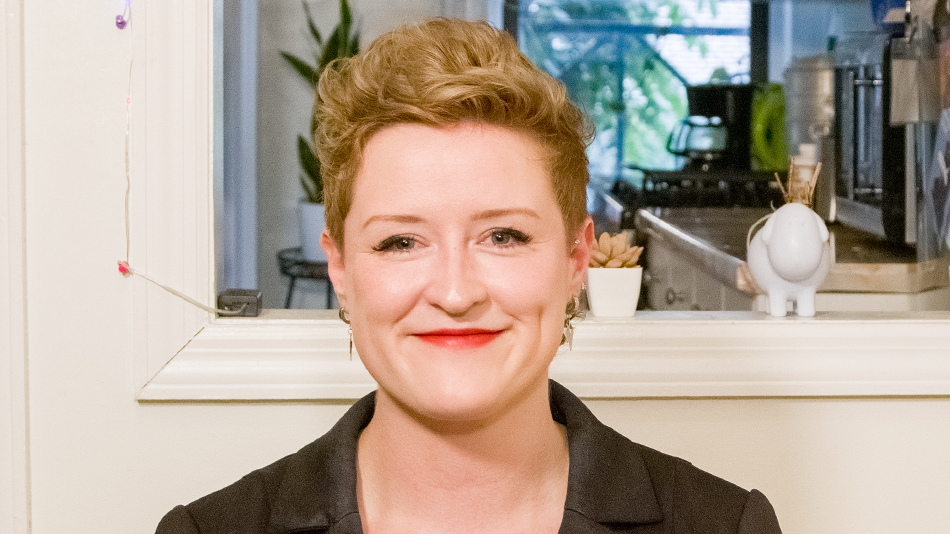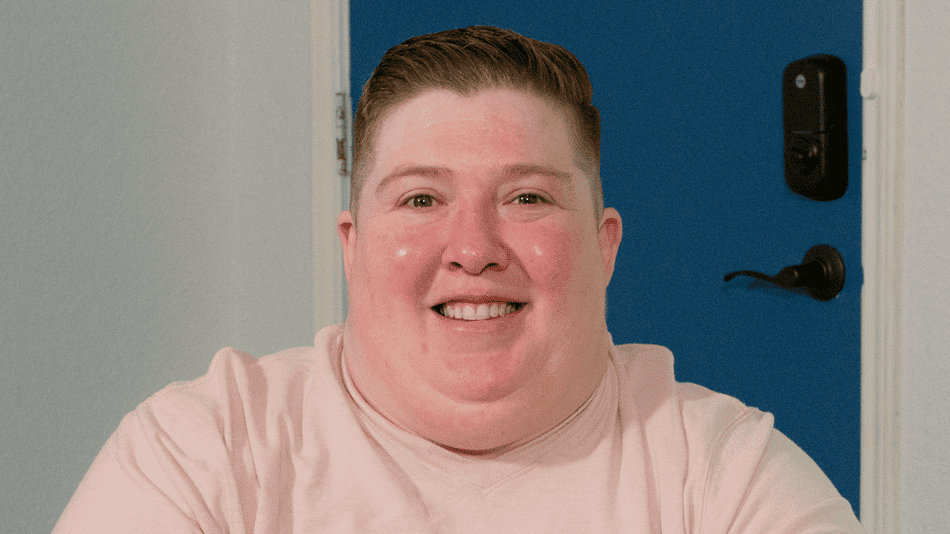I’m Lynn Currie. I’m from Austin, Texas.
Growing up my dad was in the military, so we kind of moved all around. And ended up finishing up high school in a little town called Bryan, Texas, which is a little rural, I had been in D.C. before that and hopped to Austin, or hopped to Bryan, came out at 17 and my mom said, “You gotta go. You can’t stay here in Bryan, this is where A&M is, it’s conservative. You need to go where people are a little more liberal.”
So I landed at UT and quickly got involved with kind of some of the AIDS and HIV activism. There were a couple different groups: there were always the folks that were really willing to get arrested, and then there were those of us who just would kind of lend our voice and say, “We’re with you.”
At some point throughout my college career, I started dating this woman who was in this group called “Lesbian Avengers.” And these were the hardcore dykes. They were out there. They were ready to go down for their friends. They were ready to yell and scream and get arrested. And they loved it. And wow they were scary sometimes, but they were fun!
And I was dating this girl, and there was this protest at the Capitol. We go down there, and we’re planning it the entire time, and they have all these things that they’re going to do: they’re going to be throwing things over the railing, they’re going to be screaming when the politicians start saying something they don’t want to hear. And they were ready, and we had the lawyer on call. We were ready, they were going to get arrested.
So we all go up there, and I let this girl that I’m dating kind of sit next to me, and kind of scooch over a little bit because I don’t want to get arrested. I don’t want to call my daddy and tell him that I’m in jail. So I kind of stay close enough to be involved, but far enough away that I’m away from it. So of course it all starts and they get arrested, and we watch them get taken off. We head down to the courthouse, and we get the lawyer in there, and we sit there in the courthouse and I think we were in there for three or four hours while we waited for these guys to get released from jail. And we just sat there and we just talked. Eventually, they got released, and I don’t know if–I didn’t date the girl for much longer–so I don’t know if she ever had to do community service or what, but that was that.
So fast forward 22 years later to where we are today. And this last summer the marriage equality case came down. And the difference was just crazy to me. We had, I go down, the court decision goes down, and I decide that I’ve got to do something with myself, I have to be out and amongst my people. So we go down to the county clerk’s office, where the big party is happening, people are getting their license. Go down to the courthouse a little bit later, and I run into this guy who is in the courthouse, this guy named Jim Parsons and he’s working there. He comes up to me, and says, “Hey, so are people coming from the county clerk’s office?”
So I say, “Well, there are a bunch of them over there, and they know the courthouse closes at five so they can’t do the marriages afterwards.” So he asks me, “Hey can you call over to someone you know at the county clerk’s office and let them know that we’re going to keep the courtrooms open. We’ve got two judges who are willing to stay as late as it takes until people stop coming, so they can get married.”
And in Texas, I don’t know if you know this, but there’s a three day waiting list or a three day wait after you get your license until you can get married. And these judges can sign off on it for whatever reason they want. And so these judges were here, and they were in their courtrooms waiting for people to come in, and willing to sign off and marry them into all hours of the evening. And I look at that and I think, where we are now and where we were then is so hugely different.








Share